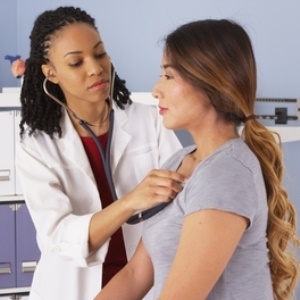
There are many health screening tests for women. Maybe you wonder if you are up to date with them all. Or you may feel vaguely that you should probably start having them done - yet not really know precisely what tests you should have, when and where, or even what they are for. Considering the time and expense involved, are they really necessary?
Screening tests are only worthwhile if they help to improve overall health by detecting common, curable /treatable and serious diseases early. Also, a test has to be accurate enough before it will be made available to the public. The tests listed below meet these requirements. In showing up problems early, they are a tremendous aid for any woman who assumes responsibility for looking after her own health.
General tests
Everyone should have a general check-up at least once a year. Your doctor can check pulse and blood pressure and ask questions to determine whether you are at risk of developing medical conditions. Regular dental checkups are also important. A visit to the dentist every six months is recommended.
Women aged 18 to 39 :
- Pap test - every one to two years
- Cholesterol - every five years
- Clinical breast exam - every three years
- Skin examination - every three years
- Thyroid test at 35
During this time many women become sexually active and run the risk of sexually transmitted diseases (STD). If you are concerned speak to your doctor.
Women aged 40 and 49 (additional to tests at earlier age)
- Mammography - every two years after age 45
- Fasting blood sugar test - every three years
- Skin examination - every year
The occurrence of cancer is increasing after the age of 40. Surveillance of the skin, cervix and breast is becoming even more important. Diabetes is more common in mid-adult women.
Women aged 50 to 64 (additional to tests at earlier age)
- Colon cancer screening - every year
- Bone density test - indicated if you are at risk for osteoporosis
- Eye evaluation - tests will determine vision, but will also test for common problems such as glaucoma
The possibility of cancer of the large bowel is higher in this age group. Your doctor can do a simple test to detect small amounts of blood in the stool. If the test is positive, or if there are symptoms you may need a sigmoidoscopy or colonoscopy. These tests involve inspection of the lining of the bowel by means of a camera.
If there are risk factors for brittle bones (osteoporosis) your doctor may suggest a bone scan. The results will help to decide if treatment is necessary. Risk factors include: surgical removal of ovaries at young age, early menopause, family history and certain chronic medical conditions.
Women aged 65+ (additional to tests at earlier age)
Prevention of disease remains as important as ever. Consider:
- Vaccination against influenza (every year) and herpes zoster to prevent shingles (once every 10 years).
- Bone density - at least once
- Regular eye tests (once a year)
- Hearing test (every three years)
The aim of these screening tests is to prevent disease or to diagnose it early. This is called secondary prevention of disease. Primary prevention means reducing exposure to disease-causing situations. Do not smoke, do practise safe sex, get adequate exercise and eat healthy foods. This will improve your overall health even more!
All of these screening tests can be provided by a private health practitioner. Most of them are also available through the public health system, although possibly not at the same intervals. Your health care provider at a clinic can supply more details.




 Publications
Publications
 Partners
Partners














